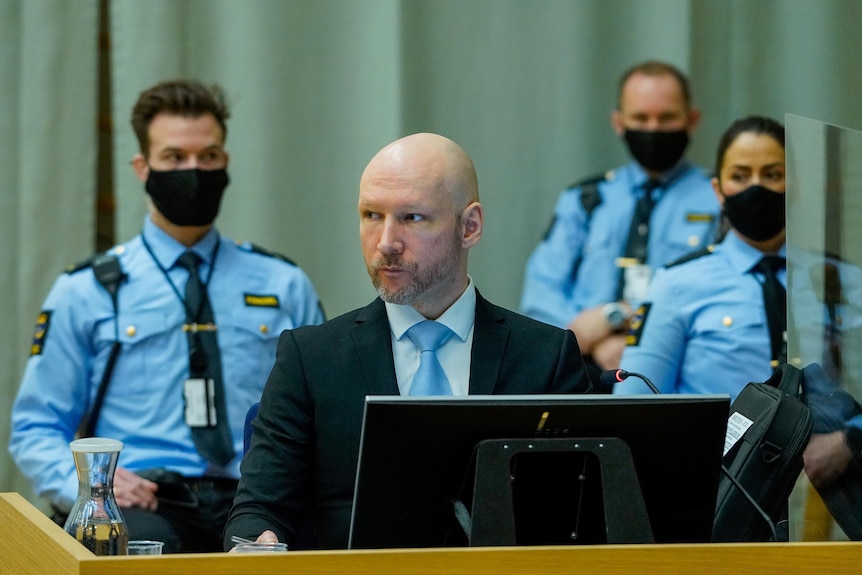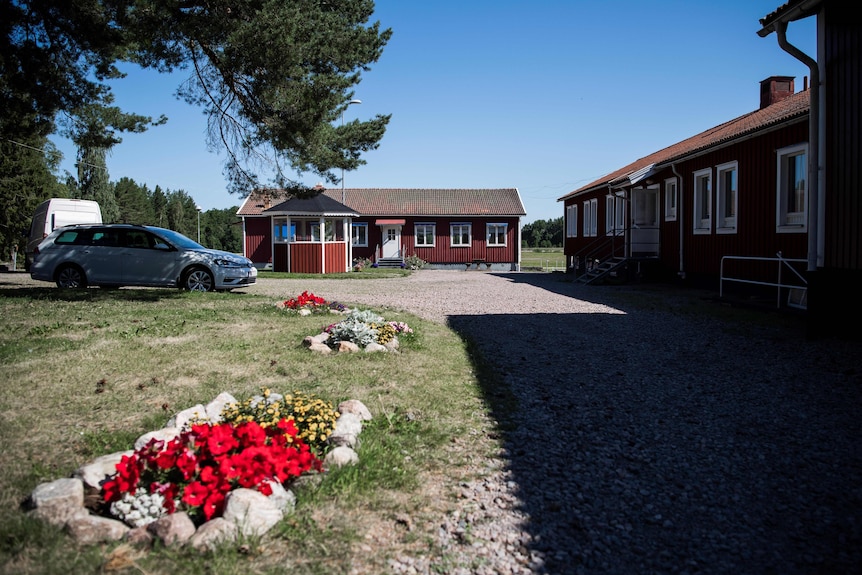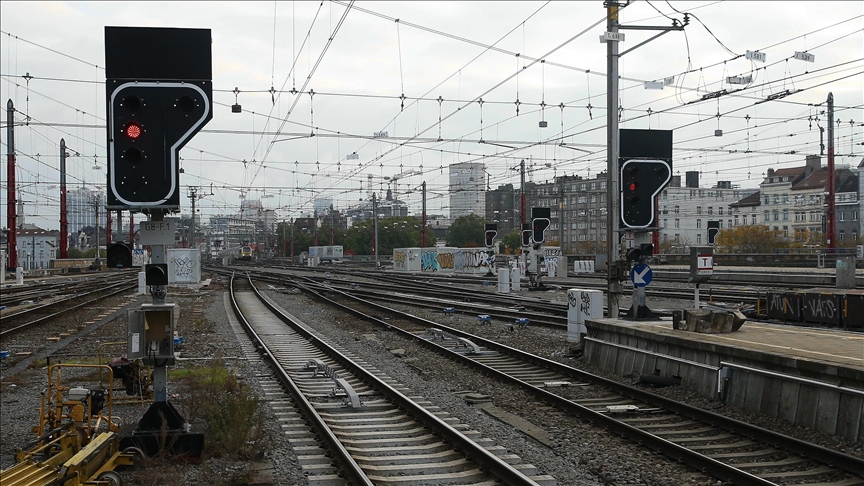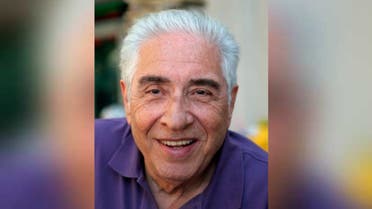Nordic criminal justice: How does it differ from Australia and does it work?At an open prison in Mariestad, Sweden, inmates work at the attached farm.
(Getty Images: Jonathan Nackstrand)
When John Pratt visited one of Sweden's "open prisons" outside the capital Stockholm, he was shocked at what he saw.
"There was a carpark for the inmates and they commuted to Stockholm during the day for work," he tells ABC RN's Rear Vision.
"If they were going to be back late at night, they would phone the prison and a meal would be left out for them when they got back."
Pratt, an emeritus professor from the Institute of Criminology at the Victoria University of Wellington, says it was all "difficult to digest … but that's how it works".
Open prisons can be found across the Nordic countries of Sweden, Norway, Denmark and Finland, and are just one element of criminal justice systems that are very different to Australia.
There, it's generally accepted that punishment and rehabilitation go hand in hand, and that prisoners, no matter what their crime, have certain rights.
And it appears to be working — these countries have some of the lowest crime rates and lowest rates of recidivism in the world.
So what are these Nordic countries doing differently and what can Australia learn from them?
Keeping people out of prisons
Baz Dreisinger is a professor and executive director of the Incarceration Nations Network. She has an in-depth knowledge of criminal justice systems across the world.
Dreisinger says first up, these Nordic countries have excellent social services, which have important flow-on effects.
"Because of strong social services, crime is less likely to occur," she says.
But when crime does occur, these countries work hard to keep people out of the prison system.
"People don't automatically get sent to prisons as a knee-jerk, immediate response … there's very strong mediation programs that are capable of diverting people out of the system to begin with," Dreisinger says.
Across Sweden, Norway, Denmark and Finland, the prison population is about 17,000. This compares to about 42,000 in Australia and more than 2 million in the US.Inside the Halden maximum-security prison in Norway.
(Reuters: Trond A Isaksen)
These countries also have very different attitudes around sending children to prison — they very rarely do it.
As Dreisinger says: "Sending a young person to detention is the absolute, complete last resort … It [only] happens in extreme circumstances".
In Norway, for example, the age of criminal responsibility is 15 years old. But even then, there's only a handful of under-18s behind bars.
"There are just a few inmates in Norway under the age of 18. They have committed serious crimes," says Jan-Erik Sandlie, the deputy director general in the Norwegian Directorate of Correctional Services.
"At the moment, I think it's two or three under-18s in Norwegian prisons."
It's a different story in Australia.
Here, the age of criminal responsibility is 10 years old. And according to the Australian Institute of Health and Welfare, on an average night in 2021, there were 819 young people between the age of 10 and 17 years in youth detention.
Shorter sentences
People who do end up in Nordic prisons can spend a much shorter period there than offenders in other countries.
The maximum term in the Norwegian criminal justice system, for example, is 21 years.
"They have provisions for indefinite sentences as well. But these are very, very rarely used. And as far as I'm aware, there's only a handful of prisoners serving those sentences," Pratt says.
One of these prisoners is Anders Behring Breivik, the far-right terrorist who murdered 77 people in 2011.

Mass killer & NAZI Anders Behring Breivik attends his trial where he requested release on parole earlier this year.
(Reuters)
Of the Breivik case, Dreisinger says: "If there are scenarios where someone is clearly a great danger to society, and needs to be deprived of liberty for extensive periods of time, that person will be held".
"It's not as if the system there is naive, in terms of not recognising that there are some people, if you place them in the world, that will cause extreme harm. It's just that that's not the starting point for the Norwegian system."
What are the prisons like?
So, when it comes to the bricks and mortar, and what happens inside, just how different are the prisons?
In Australia, prisons are often removed from communities, but in these Nordic countries, they can be found in the middle of towns and cities.
"So if you go to prison, it's highly likely … your family will be able to see you with relative ease," Pratt says.
Then there's the distinction between "open" prisons and "closed" prisons.
WE HAD ONE OF THESE IN CANADA (ONLY ONE!) VERY SUCCESSFUL
IT GOT SHUT BY THE HARPER TORY GOVT. TO SAVE MONEY 
Inmate houses on Rodjan farm, an open prison that also functions as a farm in Sweden.(Getty Images: Jonathan Nackstrand)
Peter Scharff Smith, a professor in the sociology of law at the University of Oslo, says open prisons are a big part of the systems, especially in Norway and Denmark.
"In open prisons, it's not very difficult to escape if you wanted to. But the reason that people don't escape is if they get caught, they wind up at a closed prison with a longer sentence."
Conversely, Dreisinger points out: "You can increasingly move yourself toward more freedom, more openness … as your sentence goes on".
Pratt recalls another open prison he visited in Finland.
"[The inmates] were making some quite sophisticated looking speedboats and they were getting good wages. But they would have to pay a sum from those wages for their board and keep in the prison, as if they were renting their cell," he says.
"They would [also] have to donate money from the wages to pay off fines or to compensate the victims and they would save the rest of the money."
Crucially, Pratt says: "They weren't totally shut out of society, as we tend to treat prisoners here".
Guiding principles
Many of the characteristics of Nordic prisons that set them so far apart from other countries are because of a certain set of principles.
The first is what's known as the principle of "normality".
Dreisinger says the idea is that "life inside prisons ought to resemble life outside as closely as possible".
"So that means wearing your own clothes, cooking in communal kitchens, having a fair amount of mobility in different spaces, having a cell that isn't really a cell but more of a dorm, and then very, very critically, receiving the same services that you would receive as if you were on the outside."
PRISON KITCHEN, WAIT IS THAT A KNIFE, YEP THAT'S A KNIFE
Prisoners are able to cook their own meals, so they have access to a kitchen like this one in a Swedish high-security prison.(Getty Images: Jonathan Nackstrand)
Next up, the principle of "reintegration" or "progression".
"There's a tremendous emphasis from day one on what's going to happen when you leave the system — when you come out, when you go home," Dreisinger says.
And finally, there's the principle of "dynamic security" or "relational security".
"There's a very different relationship between the officers and the incarcerated individuals," Dreisinger says.
"Correctional officers act as guides, as educators. They have a relationship with the people who are incarcerated and are working together with them, to move them to a better place in life and opportunities when they come out."
In short: Incarceration is all about rehabilitation.
Less likely to return when released
Whatever your thoughts on these systems, one thing is clear: The rate of recidivism is much lower than in other countries.
"When people come out of prison, their likelihood of going back in is low. It hovers somewhere around 20 per cent. And that is compared to 60-something per cent in most of the rest of the world. So there's a significant difference," Dreisinger says.
In Australia, 53 per cent of released prisoners return to corrective services within two years.
Dreisinger credits lower rates of recidivism to how the reintegration process is handled.
"The very fact of moving down in security levels as your sentence goes on — moving to an open prison, where you're permitted to come and go, is critical to the reintegration process, because it means you are already reintegrating," she says.
The pre-trial period
But these systems are not all as rosy as they seem.
Experts point out that before a person is convicted — so while in custody and waiting for their day in court — they actually have fewer rights than those in other countries.
"Before you're sentenced in Scandinavian countries, especially Sweden and Denmark, it's a very, very different matter. The state allows itself to restrict the rights of pre-trial detainees in ways which are not possible in England, for example," Scharff Smith says.
For example in Denmark, during pre-trial, you're not allowed to use the phone and there are very strict restrictions around visitors.
"Pre-trial is a huge chunk of the prison population. If you look at Denmark, it's more than 30 per cent [of those in prison]," Scharff Smith says.
"A lot of things that go on in the remand system have nothing to do with penal exceptionalism. It does not live up to the principle of normalisation."
Systems under threat?
While there is local support for these systems, there has also been growing opposition in recent years.
"We've seen 'tough on crime' policies becoming more and more popular," Scharff Smith says.
He says this is particularly acute in Denmark where "it's been a competition of who can be the toughest".
"And ironically, it's created a crisis in the Danish prison system, because prison officers are quitting."
He says, "in my mind, these politicians, they've attacked the heart of the Danish prison service or the principle of normalisation, and as a result, the prison system is currently in a severe crisis".
Lessons for Australia
So can Australia learn any lessons from these very different systems? Should we adopt any of these measures?
"It's hard to say, because we're talking about differences that have evolved over something like 200 years," Pratt says.
"[But] I think one of the things that has struck me most is the importance of having informed debates about crime and punishment issues."
The hallway of a prison in the ACT.(ABC News: Alkira Reinfrank)
Pratt cites how during a Norwegian election in 2009, one of the pre-election debates was held in a prison, with an audience of prisoners and officers.
"That's the kind of importance they place on giving all sections of society an opportunity to speak on such occasions, and making sure that the political debate doesn't just end up as a shouting match," he says.
"Imagine yourself being in prison. Imagine how you would like to be treated. Let's start treating prisoners like that. That would be a starting point for reform."
More stories from Rear Vision:















